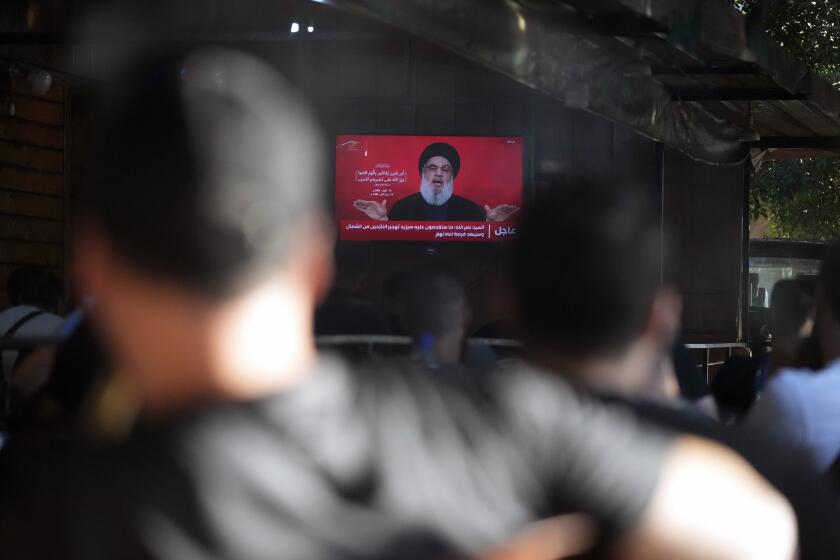No lawyer required when parents fight for disabled kids
The Supreme Court on Monday strengthened the rights of the millions of parents who have children with disabilities, ruling they may go to court on their own to fight a school district’s choice of a special education program.
The unanimous decision opens a door that had been closed to these parents in many parts of the nation, where judges had ruled that they could not go to court unless they hired a lawyer to represent them.
But as the parents of an Ohio child with autism said in their appeal to the high court, private lawyers were “often too expensive for the average ‘unrich’ American.” The justices said a private lawyer was not required because the federal law that gave children with disabilities a right to a “free appropriate public education” also gave their parents a right to fight for them in court.
“We conclude the Individuals With Disabilities Education Act grants parents independent, enforceable rights,” said Justice Anthony M. Kennedy.
He noted the law empowered parents at each step of the process in deciding on the proper education program for their child.
Moreover, “the potential for injustice” would be great, Kennedy added, if wealthy parents could fight for their children in court while poorer parents were barred because they could not pay for a lawyer.
About 7 million of the nation’s children have physical or mental disabilities that bring them under the protection of the federal law.
The ruling is a partial victory for Jeff and Sandee Winkelman of Parma, Ohio. Their youngest child, Jacob, is autistic, and they disagreed with school officials on the best placement for him in kindergarten.
The parents enrolled him in the private Monarch School, where tuition was $56,000 a year. They paid for the first year, but because their family income was less than $40,000, they could not continue to pay the cost on their own.
They wanted the school district to pay for the private school and reimburse them for the first year’s tuition.
The district refused, and when they tried to challenge the district in court, a federal judge in Cleveland and the U.S. court of appeals in Cincinnati threw out their case on the grounds that they did not have a lawyer.
The federal education law says “any party aggrieved” by the school district’s decision may go to court, but appellate judges in New York, Philadelphia, Chicago, Atlanta, Richmond and Cincinnati all ruled this referred only to the child. Under this reasoning, the 6-year-old with autism could represent himself in court, but his parents could not.
At one point, a local bar association investigated the Winkelmans for practicing law without a license.
Monday’s ruling does not mean that Jacob will be enrolled in the private school or that the Winkelmans will be reimbursed for what they have spent in tuition. It does, however, give them a chance to plead their case in court.
Los Angeles lawyer Jean-Claude Andre, who represented the Winkelmans for no charge in the Supreme Court, said: “This provides a safety net for the parents. It ensures they will have a right to the review in court that Congress called for.”
Georgetown law professor David C. Vladeck, who has represented parents in similar cases, called the decision “a step in the right direction.”
“For smart and motivated parents who are willing to take on this burden, this means they can represent their child in court. And if you think your child’s future hangs in the balance, there is nothing more important,” he said.
Several national education groups had urged the court to side with the school district in the case of Winkelman vs. Parma City School District, because a ruling for the family would spur more costly and drawn-out lawsuits.
“School districts should expect more suits,” said Kathy Mehfoud, a Richmond lawyer who had defended schools.
In the last two years, the Supreme Court dealt defeats to the parents of children with disabilities.
The court said in 2005 that they bore the burden of proving the school district’s special education program was inadequate.
And they may not seek reimbursement for the cost of hiring experts to prove this conclusion, the justices said last year.
More to Read
Sign up for Essential California
The most important California stories and recommendations in your inbox every morning.
You may occasionally receive promotional content from the Los Angeles Times.










